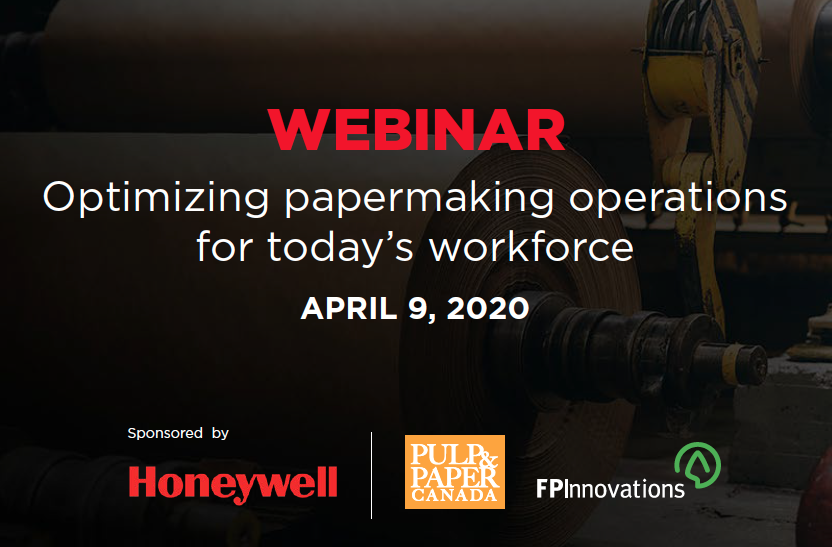
News
Equipment & Systems
Maintenance & Reliability
Paper
Workforce
Webinar recap: Optimizing papermaking operations for today’s workforce
Our recent webinar with FPInnovations and Honeywell Process Solutions explored using automation and control to mitigate workforce challenges in papermaking production
April 21, 2020 By Kristina Urquhart

Earlier this month, Pulp & Paper Canada partnered with FPInnovations and sponsor Honeywell Process Solutions to present a free webinar on how to best optimize papermaking operations for today’s workforce amid declining operator experience.
The panellists also covered some of the unique challenges faced by mills in 2020, including trickle-down from sawmill closures and the coronavirus outbreak.
“Many of those challenges are accentuated by the current global pandemic of COVID-19,” said Peter DeNicola, an engineer who manages Honeywell’s Sheet Manufacturing Center of Excellence and one of the Apr. 9 webinar’s panellists. “We’re seeing a tremendous shift in our industry in terms of high demand now for certain grades like tissue, and for packaging grades.
“At the same time we have seen the lockdown limiting resources onsite, in many cases maintenance postponed, and other events that are triggering a lot of change in our industry and a lot of challenges.”
Frédéric Parent, manager, paper and consumer products at FPInnovations, and Mark Frith, lead researcher, development and implementation at FPInnovations, kicked off the webinar with a discussion on how to preserve papermaking efficiency.
Some mills are experiencing unexpected shutdowns due to a lack of maintenance, which leads to poor paper machine efficiency. Web breaks, multiple grade changes, high number of rejects, and a lack of expertise are among the other reasons for dips in efficiency.
The current trend, they said, is that mills run at lower machine speed to obtain better quality and less breaks, but it means lower daily tonnage.
They also covered challenges and opportunities with training, how to use quality control systems (QCS) as tools for automation and control, and potential solutions to achieve papermaking optimization.
Honeywell’s DeNicola followed the FPInnovations discussion with case studies exploring how QCS can improve quality, yield and efficiency to maximize production value.
One mill struggled with high cross-direction weight variation to the tune of 800 tons lost over a period of six months. Another mill experienced high machine-direction and cross-direction variability, losing $32,000 in production to a scanner sensor overheating.
To learn about what happened, and to hear the discussion on solutions to papermaking optimization, watch the webinar recording here.
Print this page